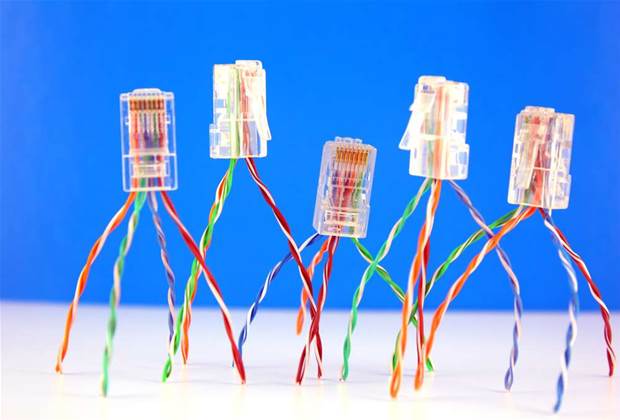The European Telecommunications Network Operators' Association has pushed for fundamental changes in modern internet infrastructure, including an end to unpaid peering and traffic exchanges between providers.

The organisation, which counts 41 telcos among its members, released a discussion paper (pdf) detailing the proposals ahead of the international World Conference on International Telecommunications (WCIT), to be held in Dubai this December.
It called for a system that forced providers to negotiate commercial agreements for peering and traffic exchanges, on the 'sending party network pays' principle.
ETNO argued such changes were needed to ensure an adequate return on investment in high-bandwidth infrastructures. The incentive to invest in transport capacity and network quality may be hampered if the common practice of unpaid peering between competing providers continued, the organisation said.
According to the paper, ETNO members saw "a huge disproportion amongst revenues and a clear shift of value towards Over the Top players ... who are not contributing to network investment".
Such players, often content providers, generated more than 70 percent of incoming traffic, ETNO claimed. It pointed to the United States, where movie rental site Netflix reportedly generates over a quarter of all Internet Protocol data.
It pushed for significant network investment to ensure end-to-end quality with strict guarantees on minimum bitrates, latency, jitter and packet loss.
ETNO described modern internet infrastructure as "best effort", which was "generally sufficient for search queries" but poor value for video traffic.
Criticisms
The proposal is one of many included in the renegotiated International Telecommunications Regulations treaty, to be discussed at WCIT in December.
ETNO argued the ITRs was a "fitting home" for the principles.
But the organisation argued it was not "trying to bring back the circuit switched architecture of the PSTN" with the principle, a core criticism of those against the principle.
The proposals, floated at the ITR talks, were roundly criticised by the Internet Society (pdf) in June this year as risking "the diversity and competition of the communications sevices marketplace that gave rise to the commercial Internet in the first place".
"There is no detailed, objective economic analysis of the sending-party-network-pays settlement proposal that indicates it will have a beneficial effect on the economic value of the Internet," the society argued.
Quality of service could be deployed within providers' networks without the need to introduce inter-governmental treaty to lock in a particular technical or commercial approach.
Doing so would limit the future potential of the telecommunications infrastructure, it said.
It said it could also lead to unintended consequences, such as misrouting traffic for fraudulent purposes, fewer interconnections for developing countries and a fragmentation of the internet.
The chief executive of the Telecommunications Users Association of New Zealand, Paul Brislen, said the treaty would become a battleground for regulators and investment authorities over the next few years.
"What do regulators do, if anything at all, about over-the-top providers that offer services on telco infrastructure but don't pay anything to the upkeep of that infrastructure?" Brislen said.
"It's all brought into sharp relief in the world of 'universal service obligations' where telcos are claiming they can no longer support such regulated demands and the OTT providers are typically excluded from paying anything towards these."
Brislen said the real solution would be for telcos to abandon their vertically integrated business models and focus on the core business of building and running a network.
"They need to dump their fancy offices, their market arms, their sales teams and simply concentrate on the network itself. By reducing costs in this areas that they can no longer hope to compete in, telcos who move to this model will survive the change of the market," he said.
"Those that don't, will be saddled with a cost-structure that far outweighs their ability to make money, once the OTT providers have soaked up all the customer spend and customers look to the networks for one thing only — data."


_(33).jpg&h=140&w=231&c=1&s=0)








 Cyber Resilience Summit
Cyber Resilience Summit
 iTnews Executive Retreat - Security Leaders Edition
iTnews Executive Retreat - Security Leaders Edition
 Huntress + Eftsure Virtual Event -Fighting A New Frontier of Cyber-Fraud: How Leaders Can Work Together
Huntress + Eftsure Virtual Event -Fighting A New Frontier of Cyber-Fraud: How Leaders Can Work Together
 iTnews Cloud Covered Breakfast Summit
iTnews Cloud Covered Breakfast Summit
 Melbourne Cloud & Datacenter Convention 2026
Melbourne Cloud & Datacenter Convention 2026












_(1).jpg&h=140&w=231&c=1&s=0)



